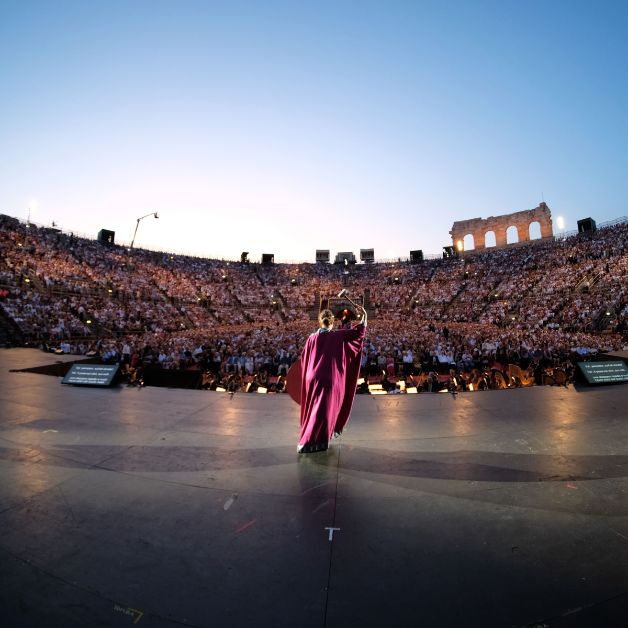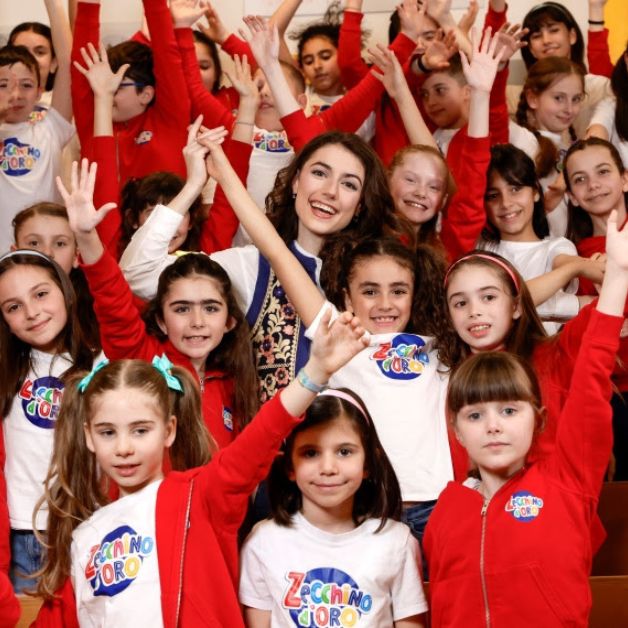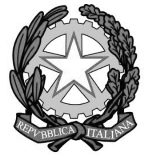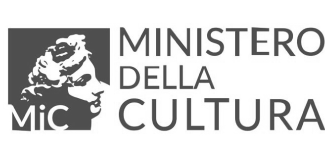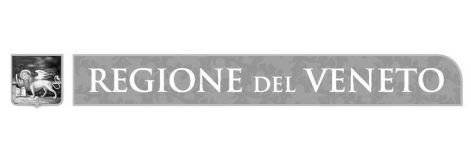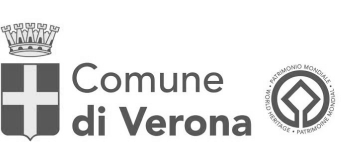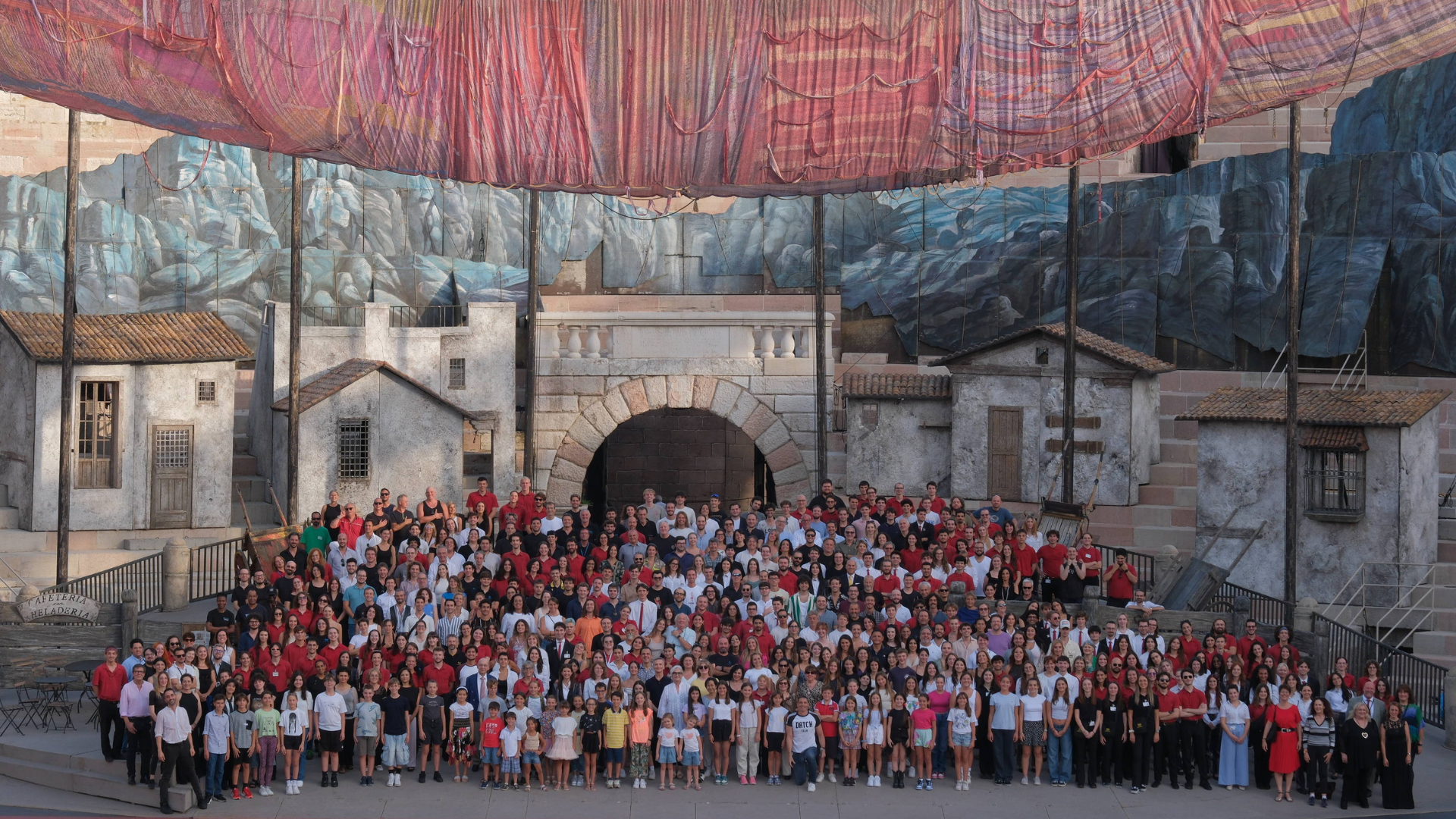
The numbers from the 101st Arena di Verona Opera Festival
A record-breaking season with audience members from abroad, more spectators under 40
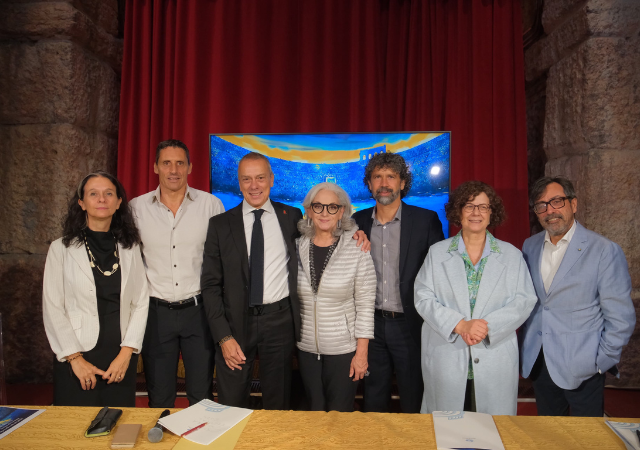
Best ever takings in the history of the Festival, totalling €33,620,000
New record for takings in a single evening: the 8 June performance of Turandot took €1,022,000. A total of 417,000 spectators, 57% of whom from 136 countries around the world. More than 59 million interactions on socials. Coverage from accredited media outlets such as The New York Times, Le Monde, Le Figaro, Associated Press, Financial Times, Tagesspiegel and RTE
An edition that will go down in history for the records it has broken, sold-out shows, major anniversaries and big debuts.
The 101st Arena di Verona Opera Festival has come to an end after three months and 50 evenings of live entertainment whose takings—totalling €33,620,000—represent the best ever for the festival. This total eclipses that of the 100th edition. The number of spectators at the amphitheatre is up, with 417,354 in attendance in summer 2024, 15,000 more than last year. Testament to the global reach of the festival is the fact that 57% of the audience members were from 136 different countries around the world, including—for the first time—Barbados, Cambodia and Aruba. Germany remains on top, with numbers from the United States, Canada, Spain and South Korea seeing an increase. The number of young people in attendance has also increased (+3% in the under-30 category and +5% in the 30-40 age group).
Since the last SIAE report was released, the world of live entertainment has grown. In the past year, opera has been attended by 2.1 million spectators. With its three month-long festival, the Arena di Verona accounts for almost 20% of the national total.
During the 2024 season, a number of performances were sold-out. No fewer than 16 evening shows, in fact. Turandot, the first title on the bill, registered four sold-out shows and over 40 thousand spectators. This marks a new record in the history of the Fondazione Arena. The first performance on Saturday 8 June took €1,022,000: a first for a single evening show at the Arena. For 15 years, the record was held by the Gala Domingo on 24 July 2009, directed by current Deputy Artistic Director of the Fondazione Arena, Stefano Trespidi. Franco Zeffirelli’s magnificent, spectacular production will be performed again in Seoul, South Korea, from 12 to 19 October. The top production in terms of takings and attendees, Carmen brought the Festival to a close on 7 September with the last of 9 performances. Sale numbers reached their peak in the second half of July.
MAJOR FIGURES. For the 2024 season, the Festival opened and closed with a sold-out Arena, with some of the highest-ranking figures in Italy and abroad in the audience, including President of Italy Sergio Mattarella, Prime Minister of Italy Giorgia Meloni, President of the Senate of Italy Ignazio La Russa and President of the Chamber of Deputies of Italy Lorenzo Fontana who himself returned on 6 September with a number of representatives of the G7 Parliaments and the President of the European Parliament Roberta Metsola. Other ministers, parliamentary secretaries, global ambassadors for Italy and Unesco representatives were also in attendance.
ANNIVERSARIES. Some of the 2024 season’s major celebrations and anniversaries included the addition of Italian opera singing to the UNESCO Intangible Cultural Heritage list, the centenary of Giacomo Puccini’s death, the three-hundredth anniversary of Antonio Vivaldi's The Four Seasons, the one-hundredth birthday of director Gianfranco De Bosio and the two-hundredth anniversary of Beethoven's Ninth Symphony. The 250th anniversary of the Guardia di Finanza’s founding was also celebrated with a performance by the Banda delle Fiamme Gialle and the striking of the gong by Italian athletes.
STARS AND DEBUTS. This season will also go down in history for the exceptional artistry of its productions. A whole host of great stars returned to Arena stage: Anna Netrebko, Jonas Kaufmann, Yusiv Eyvazov, Ludovic Tézier, Ekaterina Semenchuk, Francesco Meli, Roberto Alagna, Luca Micheletti, Vittorio Grigolo, Elena Stikhina, Luca Salsi, Roberto Bolle and Plácido Domingo. Joining these were other big names making their Arena debut: Aigul Akhmetshina, Pretty Yende, Erin Morley, Juliana Grigoryan, René Barbera, Igor Golovatenko, Marta Torbidoni, Paolo Bordogna.
Playing a vital role were the national and international media outlets present, including 1200 attendances on behalf of 255 accredited newspapers and broadcasters. Worldwide, more than 5200 articles and reports about the 101st Festival—published online and in print and presented on the radio and TV—were produced.
The rich, varied schedule saw the performance of 7 opera productions, including Aida in both its 1913 and 2023 “crystal” iterations, a celebratory opening evening, four concerts, including the innovative Viva Vivaldi, and four evening shows dedicated to dance: two of Roberto Bolle and Friends in the Arena and two of Zorba the Greek at the Roman Theatre of Verona.
Every social-media channel has grown. And, for the first time, the Arena di Verona began posting on TikTok, a platform with very young viewers among its audience. On socials, users in the 25-34 age group are equal in number to those in the over-35 category. By the end of the Festival, the Facebook, Instagram and TikTok channels registered almost 59 million interactions, +26% on last year. Here, followers from all over the world, particularly Germany, Brazil, the United States and Argentina, played their part. The “Gonghista per una sera” initiative was a huge success, registering 3 million organic views and almost 16 million impressions.
The summer spectacle of music and opera made waves on TV too. On 7 June last year, the festival’s opening event—La Grande Opera Italiana Patrimonio della Umanità—was broadcast live on prime-time television by RaiCultura on Rai1 and RaiPlay, and was seen by 3 million viewers in Italy—an audience share of 16%—and over 70 million estimated viewers worldwide. La Bohème was recorded on 19 and 27 July and aired on 10 August on ZDF/3sat. Turandot, performed on 8 June, was broadcast at prime time by Rai3 on 19 August, attracting over 434,000 viewers in Italy. The “crystal” version of Aida returned to television on 23 August on Rai5 and Nabucco, recorded in 2022, was shown on 26 August and watched by 383,000 viewers.
During the 101st Opera Festival, the “Arena for All” accessibility project, developed in collaboration with the festival’s Accessibility Partner Müller, was expanded. Covering twice as many evenings than before, a thousand people with disabilities were able to enjoy the shows with the aid of technological supports and through multi-sensory pathways.
"I would like to thank all the staff members who represent the human side of our organisation in the heart of the city, which I preside over and of which I believe Verona should be very proud”, says Damiano Tommasi, Mayor of Verona and President of the Fondazione Arena, “This first edition of the festival following the centenary posed a real challenge because a dip in results was considered a possibility. Instead, what was created led to even better numbers. This was the main aim this season, which began, remarkably, with the four highest-ranking figures in Italy in attendance at an event that, together with the evening attended by delegations of the Presidents of the lower houses of the G7 member states, will go down in history. We are delighted that our organisation continues to deliver big results. We already have a foretaste of two more historic dates to come: the 2026 Olympic ceremonies. Coinciding structural needs, work to be carried out inside the amphitheatre and the shows themselves will be the next challenge. International events strengthen the reputation of the Arena, which is where our culture lives and breathes. This is a priority shared by the many companies that support our Foundation, starting from the 67 Columns project".
"Now that the 2024 festival has come to an end, I want to shine a light on the 1415 people who made it possible", says Cecilia Gasdia, General Manager of the Fondazione Arena di Verona, “I would like to sincerely thank each and every one of them who in each office, sector, art form and profession, from youngsters to veterans all the way through to managers, have worked hard day and night towards the success and enjoyment of the shows. I also want to thank the Board of Directors, the founding partners, the Province of Verona, all the sponsors and the Columns for supporting our civil and cultural goals. The results of the 101st season have exceeded our expectations. Each day, since the preparation stage, the festival has been a success, with enthusiasm and passion emanating from the Arena and touching everyone: the image of the rehearsals for the opening gala is one I will hold in my heart, as well as the joy of meeting soloists from all over the world and orchestra musicians and choir singers from theatres throughout Italy, all coming together as one".
"As shown by local hotels’ performance data, the Arena attracts quality tourism. And that is something we all want”, adds Marta Ugolini, Councillor for Culture of the Municipality of Verona, This creates global connections and increases the international diversity of the audiences. That said, as a municipality, it is our job to ensure the festival is rooted in the city itself. This is why, once again this year, we had screens installed in five parks and neighbourhoods in Verona to show the first performance of Turandot, with a portion of proceeds from tourist taxes invested in the project. The collaboration with the Fondazione Arena also involved bringing ballet to the Roman Theatre, where two evening performances of Zorba the Greek dazzled and delighted spectators. We are really pleased and will keep working to get better and better”.
"We did not think we would surpass the record results of 2023; we were actually prepared for a slight dip in public interest. But the Arena has this magical power to not only attract and embrace workers and spectators alike, but to keep surprising us too”, concludes Stefano Trespidi, Deputy Artistic Director of Fondazione Arena di Verona, It is a great source of pride to be able to go back over this season, revisit these wonderful shows and, above all else, list the names of the artists who took to this magnificent stage over the course of less than three months, artists who you can only see perform throughout the year in the world’s most prestigious theatres. Delighted with these results but unwilling to rest on our laurels, we have already started selling tickets for the 2025 festival and look forward to the new season with great anticipation, including cast and production announcements, ready to share the Arena di Verona with the world”.
The Arena di Verona Opera Festival 2024 was supported by numerous sponsors, headed by UniCredit, whose partnership has endured for more than 25 years, followed by Calzedonia, Pastificio Rana, Volkswagen Group Italia, DB Bahn, Forno Bonomi, RTL 102.5, Genny—which provided the uniforms worn by the staff welcoming the audience members—and Müller—which supported accessibility projects for people with disabilities. Official partners include historic brands such as Veronafiere, Air Dolomiti, A4 Holding, Metinvest, SABA Italia, SDG Group, Sartori di Verona, Palazzo Maffei and Mantova Village. Also on board are Poste Italiane, ManPower Group and Consorzio di Tutela dell’Aceto Balsamico Tradizionale di Modena DOP. In addition to companies, private individuals, and professional associations that make up the ranks of the Membership 67 Columns for the Arena di Verona, founded by Gianluca Rana from the namesake pasta factory, and Sandro Veronesi, patron of the Oniverse Group, with Gruppo Editoriale Athesis as media partner.
THE SCHEDULE. Marking the beginning of a new century in the history of the Arena di Verona Opera Festival, the 2024 season brought with it scheduling challenges due to the rich, varied lineup totalling 50 shows between 7 June and 7 September. This included 7 opera productions, including a new one, 7 event evenings and two dates of ballet. Kicking off the 101st Festival in a remarkable way on the opening night was La Grande Opera Italiana Patrimonio dell’Umanità, created by the Ministry of Culture in collaboration with the Fondazione Arena di Verona, Rai Cultura and SIAE. The event, broadcast live on international television, celebrated the inclusion of Italian opera singing in UNESCO’s list of intangible cultural heritage, following a years-long journey in which the Fondazione Arena played an active role. The first part, dedicated to symphonies and songs from Belcanto to Puccini and conducted by Maestro Riccardo Muti, was followed by an anthology of famous arias from the great opera repertoire of the 19th century, performed by twenty of today’s greatest artists and conducted by Francesco Ivan Ciampa. In this all-new production, in which the opera pit was transformed into an extraordinary performance space, 164 orchestra musicians and 314 choir singers from the twelve symphonic opera foundations of the A.N.FO.L.S., the Teatro alla Scala, the Accademia Nazionale di Santa Cecilia, the A.T.I.T. theatres of tradition and from across Italy performed.
The 100th anniversary of the maestro’s death, 2024 has been Puccini's year, with the Arena di Verona honouring him with three of his works: Turandot, which saw 4 sold-out dates in June for Franco Zeffirelli’s magical production, featuring costumes by Oscar winner Emi Wada; La Bohème, performed twice in July a successful new production featuring sets designed by Guillermo Nova and marking the Arena debut of Alfonso Signorini as director; and Tosca, which saw 4 sold-out dates in August and featured a star-studded cast directed by Hugo De Ana. The Argentine director, set designer and costume designer also directed Rossini's entertaining The Barber of Seville, which was brought back for 7 performances following last year's successful production. Verdi's Aida, the Arena’s top opera, was performed in two different productions: for the first 10 evenings, the innovative power of Stefano Poda's imaginative version filled the Arena with light, while the following 5 performances from 10 August (exactly 111 years after the work’s premiere at the Arena) saw spectators revisit Gianfranco de Bosio’s production (coinciding with the director’s 100th birthday) designed to replicate the first performance of Aida back in 1913. With exceptional voices and striking new touches once again this year, Bizet's Carmen was performed 9 times on the stage, in the classic, film-like production Zeffirelli made his Arena debut with.
The festival’s event evenings saw the return of important lyrical-symphonic concerts for the packed Arena crowds: Beethoven's Ninth Symphony, on the two-hundredth anniversary of its first performance, and Orff's much-loved Carmina Burana. 55 years after his Italian debut in Verona, Plácido Domingo returned with Iberian artists and dancers to pay homage to the Arena and the “Zarzuela” art form in the unforgettable Noche Española, while the immersive show Viva Vivaldi, co-produced with Balich Wonder Studio and in which an Orchestra led by solo violinist Giovanni Andrea Zanon performed music from the famous Four Seasons concerti alongside special effects and high-definition images for new Arena spectators, brought an all-new dimension to the season. Great dance returned to the stage with two performances of Roberto Bolle and friends, in which the étoile dancer was joined by exceptional artists from across the world, and two sold-out showings of Zorba the Greek at the Roman Theatre.
THE ARTISTS. This season, a number of great artists from the international opera scene strengthened their ties with the Arena di Verona, alongside a plethora of talented youngsters. A total of 120 of today’s best singing voices, star dancers and maestros took to the stage for the 101st festival, of which 35—illustrious and highly anticipated—made their debuts to rapturous response from audiences and critics alike: conductors Michele Spotti, George Petrou, Leonardo Sini, sopranos Olga Maslova, Marta Torbidoni, Pretty Yende, Juliana Grigoryan, Eleonora Bellocci, Erin Morley, Chiara Fiorani, Kristina Mkhitaryan, mezzo-sopranos Aigul Akhmethsina, Agnieszka Rehlis, Alisa Kolosova, Alessia Nadin, Ekaterine Buachidze, tenors Galeano Salas, René Barbera, Ivan Magrì, Jack Swanson, Leonardo Cortellazzi, Paolo Lardizzone, Matteo Macchioni, baritones Igor Golovatenko, Paolo Bordogna, Misha Kiria, basses Hao Tian, Domenico Apollonio, Salvatore Salvaggio, director Alfonso Signorini, principal dancers Davide Buffone, Gioacchino Starace, Denys Cherevychko and Futaba Ishizaki. Returning to the festival were 10 conductors, including Riccardo Muti, Francesco Ivan Ciampa, Marco Armiliato, Alvise Casellati, Jordi Bernàcer, Andrea Battistoni and Daniel Oren, 40 years after his debut at the Arena; 3 choirmasters; 6 directors; 7 set and costume designers; and 6 choreographers, including Massimiliano Volpini with new routines for the opening gala and Lorca Massine with his own take on Zorba the Greek. And, of course, the stars beloved by the Arena’s audiences: sopranos Anna Netrebko, Aleksandra Kurzak, Mariangela Sicilia, Maria José Siri, Jessica Pratt, Anna Pirozzi, Rosa Feola, Elena Stikhina, Saioa Hernández, Gilda Fiume, Eleonora Buratto, Maria Agresta, Daria Rybak, Daniela Cappiello, Marianna Mappa, Francesca Maionchi, mezzo-sopranos Vasilisa Berzhanskaya, Ekaterina Semenchuk, Clémentine Margaine, Anna Maria Chiuri, Sofia Koberidze, countertenor Filippo Mineccia, tenors Jonas Kaufmann, Francesco Meli, Yusif Eyvazov, Vittorio Grigolo, Gregory Kunde, Roberto Alagna, Piotr Beczała, Juan Diego Flórez, Dmitry Korchak, Freddie De Tommaso, Arturo Chacón Cruz, Carlo Bosi, Riccardo Rados, Brian Jagde, Carlo Ventre, Vincent Ordonneau, Piero Giuliacci, Martin Muehle, in addition to Plácido Domingo, baritones Luca Salsi, Ludovic Tézier, Nicola Alaimo, Amartuvshin Enkhbat, Youngjun Park, Mattia Olivieri, Davide Luciano, Jan Antem, Luca Micheletti, Nicolò Ceriani, Giulio Mastrototaro, Erwin Schrott, Fabio Previati, Dalibor Jenis, basses Alexander Vinogradov, Riccardo Fassi, Marko Mimica, Simon Lim, Rafał Siwek, Giorgi Manoshvili, Roberto Tagliavini, Carlo Lepore, Gabriele Sagona, Gianluca Buratto, Carlo Striuli; étoiles Roberto Bolle, Nicoletta Manni, Melissa Hamilton, Eleana Andreoudi, Liudmila Konovalova, António Casalinho, Margarita Fernandes, Tatiana Melnik, Giorgi Potskhishvili, Toon Lobach, Casia Vengoechea, and the soloists of the Compañia Antonio Gades.
TICKET NUMBERS. The 50 evenings of the 101st Opera Festival saw 417,354 spectators in attendance and generated a total revenue of €33,619,825, the highest in the history of the festival. This milestone was mirrored by the average per-performance takings too, which reached a record of €698,664 (€674,490 in 2023 and €575,575 in 2022). 2024 also saw the best average attendance numbers at opera performances, with 8627 spectators per night (compared to 8,219 last year). While the average age of attendees is currently 49.6 years, young people are coming in greater numbers: the number of spectators under 40 increased by 8%. The background of the more than 417 thousand spectators in attendance at the 101st Festival demonstrates the Arena di Verona’s wide global appeal: 57% of audience members were foreign, with Germany leading the pack of 136 different countries across the world (the highest number in the history of the Arena; last year, there were 125). Austria, Great Britain, Switzerland, the United States and France also ranked highly. There were more attendees from the USA (+ 1700 spectators), Spain (+ 1300), Canada (+ 500) and South Korea (+ 200), countries targeted by an international promotional tour carried out during the winter months Even the number of Italians in attendance—from all regions of the country—went up. Veneto led the way with over 31,000 spectators from Venice alone and 6000 from Vicenza, followed by Lombardy with over 20,000 (8600 from Milan), and Emilia Romagna. Following hot on their heels were Piedmont, Apulia and Sicily. Palermo and Terni, with almost four thousand attendees each, even surpassed some of Verona's neighbouring provinces. As many as 85,000 spectators said that this year was the first time they had been to the Arena (compared to 77,000 last year).
THE ROLE OF PARTNERS, SPONSORS AND THE 67 COLUMNS PROJECT. Building on the progress of the 100th Festival, five new sponsors came on board and the 67 Columns project for the Arena di Verona surpassed €2 million for the first time. In four years, large companies and small entrepreneurs, united by the desire to be part of a cultural, economic and social initiative with an international scope, have contributed to making the Fondazione Arena di Verona flourish - a hugely important enterprise, not only for the region of Verona but for the whole of Italy. Fundraising for the Fondazione Arena di Verona has continued to grow: from €1.5 million in 2021, the success of the 67 Columns project for the Arena di Verona has continued, with 1.6 million raised in 2022, 2 million in 2023 and 2.1 million reached this year. €2.75 million came in from sponsorships.
MEDIA COVERAGE. The 101st season saw wide media coverage, with a total of around 1200 attendances by press, TV, web, blog and radio workers, representing more than 255 different newspapers and broadcasters present at the festival and producing over 5200 articles and reports. Television accounted for almost double the proportion of total coverage compared to last year, increasing from 7% in 2023 to 13% this year. The proportion of in-print coverage also increased, reaching 38%, while digital coverage accounted for 46% and radio reports detected by the press review office accounted for 3%. As well as the main national, regional and local newspapers, the 101st festival was also covered by media outlets throughout the world, including The New York Times, Le Figaro, Le Monde, Financial Times, Tagesspiegel, Associated Press, Radio Tel Aviv, The Times of India, Nueva Tribuna, Crea Traveller (Japan), De Niewe Muze (the Netherlands) and RTE (Ireland).
THE 101ST OPERA FESTIVAL ON SOCIALS. The Arena di Verona Opera Festival reached 59 million interactions on Instagram, Facebook, Youtube and TikTok (new for Viva Vivaldi in 2024), up 25.88% on last year. This passionate, engaged audience left 850 thousand comments and likes. And used the hashtag #inArena 21,500 times. Around fifty influencers and talents were involved.
Videos published on social-media channels registered 8,239,032 organic views, i.e. views not spurred by advertising (+66.34% compared to last year). And replays of these videos totalled 55,784 hours. On Instagram and Facebook, the number of followers reached 605,727. Instagram alone registered 43,345 new subscribers from around the world. 51% of fans were Italian, while 49% followed the festival from other countries, mainly Germany, Brazil, the United States and Argentina. For the first time, followers in the 25-34 age group equalled those in the over-35 category. This year, the Arena began posting on TikTok, with a special campaign to promote the season’s “youngest” concert, Viva Vivaldi. For the event, a number of Italian content creators under the age of 30 were involved as "special reporters". This led to 20 million impressions, 20 million video views and 72 thousand comments and likes.
Special projects. “Gonghisti per una sera” registered 3 million organic views and 15.6 million impressions (80% by users aged 13-34) in total. The stars of this initiative included: Csaba Dalla Zorza, Benedetta Parodi, Giulia Pauselli, the athletes of the Guardia di Finanza, Myss Keta, Paola Cossentino, Marcello Sacchetta, Jody Cecchetto, Diletta Begali, Alice De Bortoli, Martina Stella, Valentina Vignali and Verona Volley. The “Sempre Libera” podcast, created in collaboration with Unicredit e One Podcast, hosted by Florencia Di Stefano-Abichain and Daniela Farnese and available on all streaming platforms, registered 52,903 plays, with an average of 14 minutes’ worth of listening per episode.
THE ARENA OPERA FESTIVAL EXPERIENCES. In collaboration with Noahlity, these corporate initiatives taking place across four exclusive areas entered their third year, involving not just the sponsors and 67 Columns project, but new companies that have chosen the Arena for their PR events too.
Included in the corporate package were four experiences in the Arena di Verona’s most exclusive areas, taking place on a number of evenings and reserved for guests of sponsors, 67 Columns donors and companies partnering with the Arena di Verona. Alongside the magic of the world’s largest open-air opera house under the stars were four new and exclusive experiences in Arena venues.
The Star Roof, the most prestigious of the initiatives on offer, allowed 24 guests per evening to access the special terrace connecting the first ring of the Arena with its symbolic wing and enjoy a meal prepared by Michelin-starred chef Mattia Bianchi before attending the opera. Joining this experience were three initiatives aimed solely at companies: the Stone Lounge, a reserved area hosting guests from their arrival at the Arena up until the beginning of the show; the Backstage Vip Pass, where guests could go "behind the scenes" at the Arena and discover areas not accessible to the public; and lastly the Meetings & Events in Gran Guardia, where guests explored—in a lounge area in the Palazzo della Gran Guardia’s bar—a number of the best labels from wineries supporting the Arena di Verona Foundation, followed by a light dinner.
THE HUMAN SIDE. This season, 1415 people worked at the festival, making it possible to achieve 2024’s results. These included 769 professional performers (160 orchestra musicians, 110 solo artists, 159 choir singers, 12 collaborating maestros, 61 dancers, 173 extras, 84 mimes and 10 dancers from the Spanish company); 229 technicians working behind the scenes before, during and after each rehearsal and show (including machinists, seamsters, dressers, electricians and tool-carrying personnel); 206 ushers and public and backstage surveillance personnel; and 85 staff members in administrative roles and various offices. Over one hundred children and young people between 4 and 17 years of age took part in the festival as treble choir signers, dancers and extras, supervised by a dozen supervisors.
THE FESTIVAL AND THE CITY. The 101st Festival got the city of Verona involved through a number of initiatives. From large screens in neighbourhoods showing the first opera performed to touring headsets and LED walls. As part of a project commissioned by the Municipality of Verona in collaboration with the Fondazione Arena and Rai Cultura, the first performance of Turandot on Saturday 8 June was shown on 5 large screens. The work was shown in Santa Marta Park (Provianda), where it sold out, and in Piazza del Popolo in San Michele Extra, in San Giacomo Park in Borgo Roma, in Cantori Veronesi Park in Borgo Venezia, and in Piazza Marinai d’Italia in Borgo Milano. Before the live broadcast from the Arena di Verona, musicologists, educators and journalists spoke with audiences about opera singing and opera storylines, interesting facts and anecdotes. In the historic town centre, the “Arena Experience” info points—through the use of virtual reality—enabled visitors to experience first-hand the staging of one of the most famous and beloved works performed during the Arena festival: Carmen. In Piazza Bra, the “Social LED Wall” showed exclusive video content produced ad hoc by the Fondazione Arena throughout the summer. In Palazzo della Gran Guardia and along the Liston, standards and banners announced the operas scheduled throughout the summer. Set materials from the production of Aida were installed in key parts of the city, accompanied by the hashtag #inarena for the sharing of photos and selfies on social media. In Piazza Bra, the Cantiere Arena and stage islands formed an evocative and harmoniously balanced display with information about the Arena’s productions, as well as vocabulary and anecdotes from the world of opera. All these initiatives were possible thanks to the support of the Municipality of Verona, which earmarked part of the tourist tax revenue for the project. Hotels and tourist associations also called for and supported these initiatives.
YOUNG PEOPLE AND SCHOOLS. The 101st Arena di Verona Opera Festival saw large numbers of young people in attendance, with 47,282 tickets purchased with either the under-30 discount or reduced rate for school students. Thanks to the well-established Arena Young project entitled Scuola e Università all’opera (School and University at the Opera), which gives teachers and students of all levels the chance to attend certain shows with special discounts, young people from across Italy, neighbouring Germany, Austria, England, Switzerland, Spain, Japan, China, the United States, Canada and South Korea were able to attend the festival. Around one hundred teachers attended the final performance of The Barber of Seville on 6 September, providing an opportunity for exchanges and discussions between the Fondazione Arena, its Training and School Promotions Department and various schools. Lastly, the season came to a close with the Giornata della Didattica - Festival dell’educazione (Teaching Day - Festival of Education), which took place in Verona between 9 and 10 September.
NEXT YEAR’S FESTIVAL. Opera, Concert and Gala tickets for summer 2025 are already on sale. The schedule for the 102nd Arena di Verona Opera Festival will begin on 13 June with a new production of Nabucco by Stefano Poda. It will continue until 6 September 2025, with productions of Aida (the “crystal” version), La Traviata, Carmen, Rigoletto, Roberto Bolle and Friends, Carmina Burana and Jonas Kaufmann in Opera. Tickets for all these dates are already on sale at www.arena.it and through the TicketOne platform and Facebook, Twitter, Instagram and YouTube pages of the Arena di Verona.
